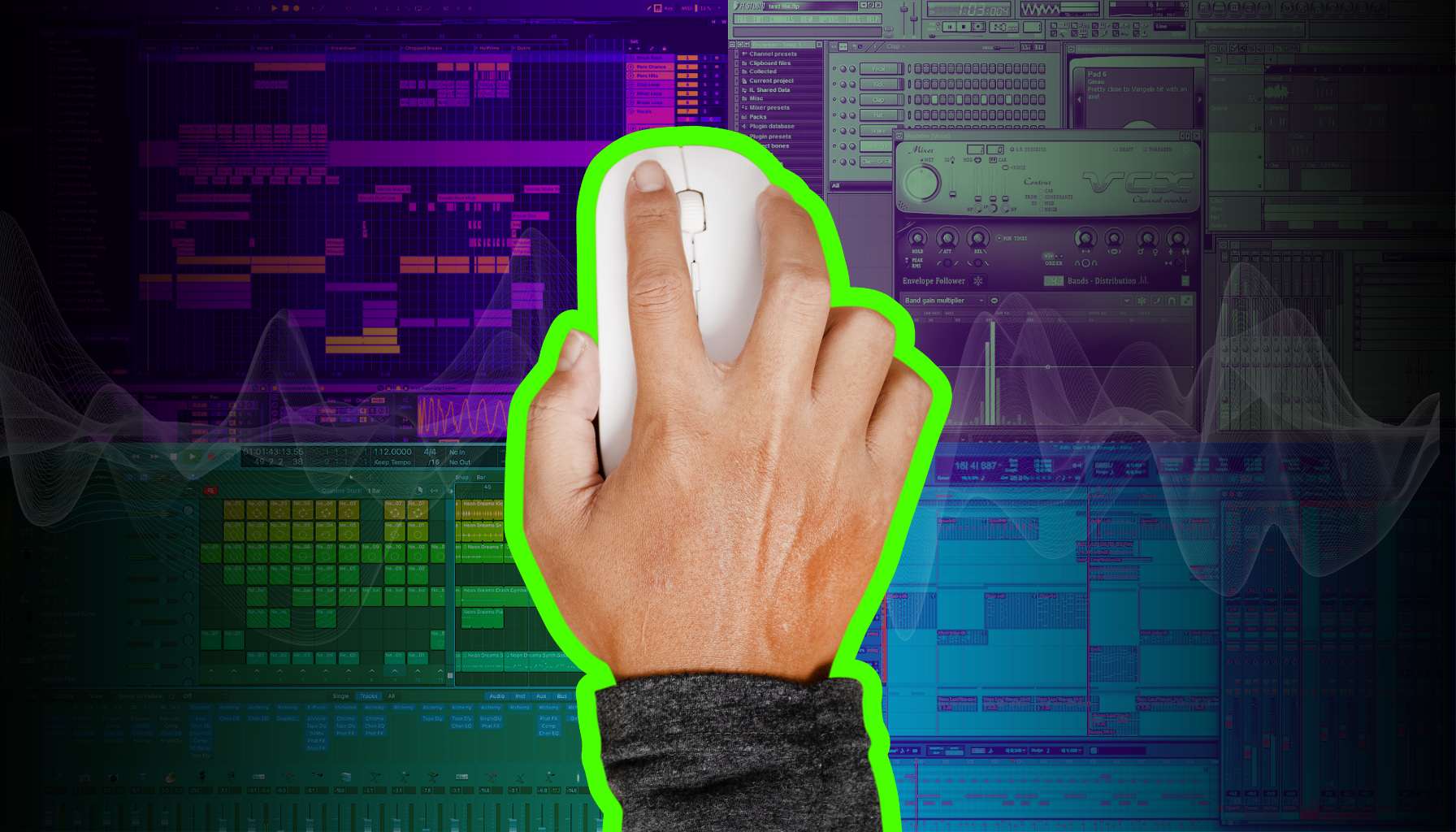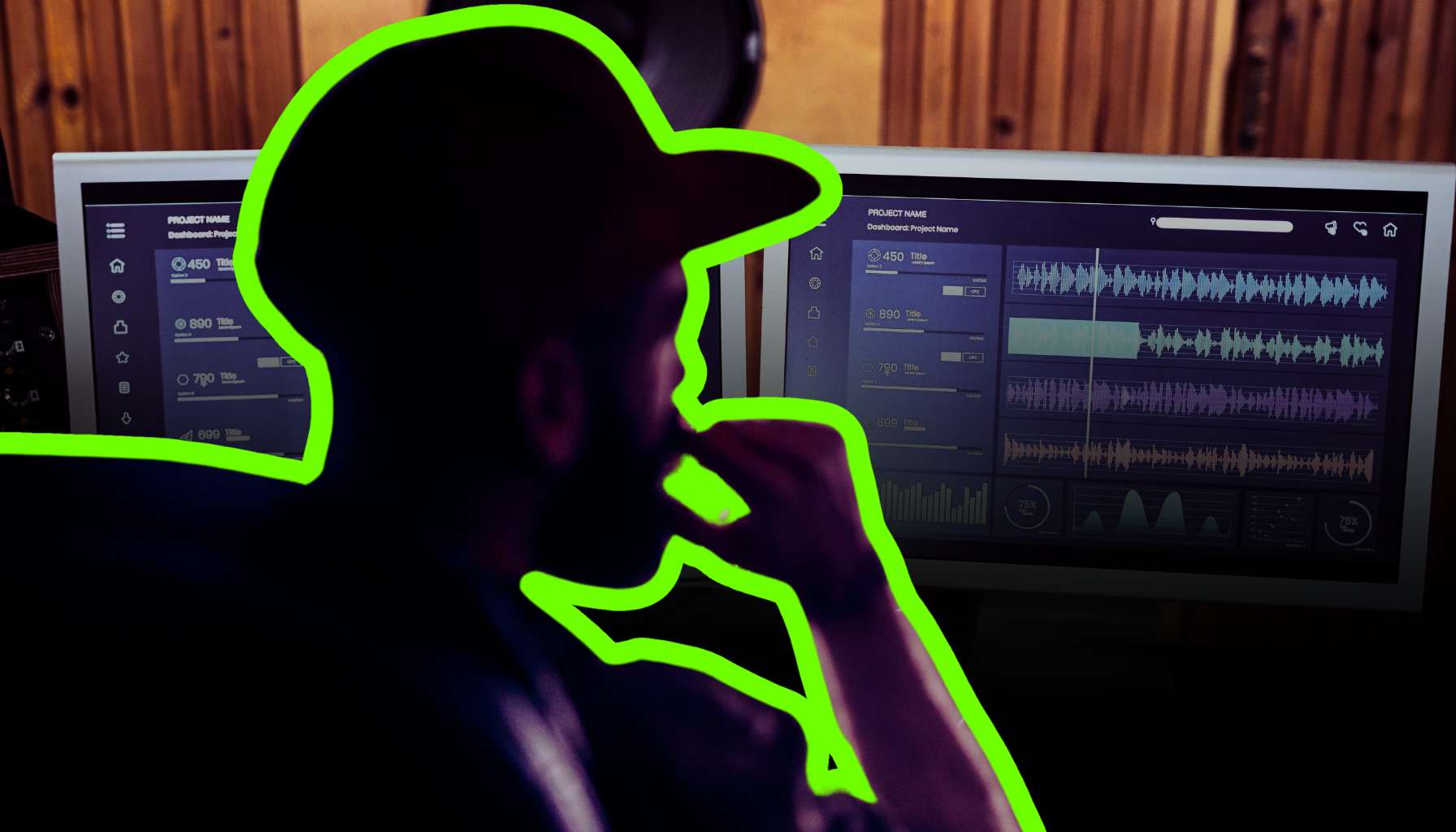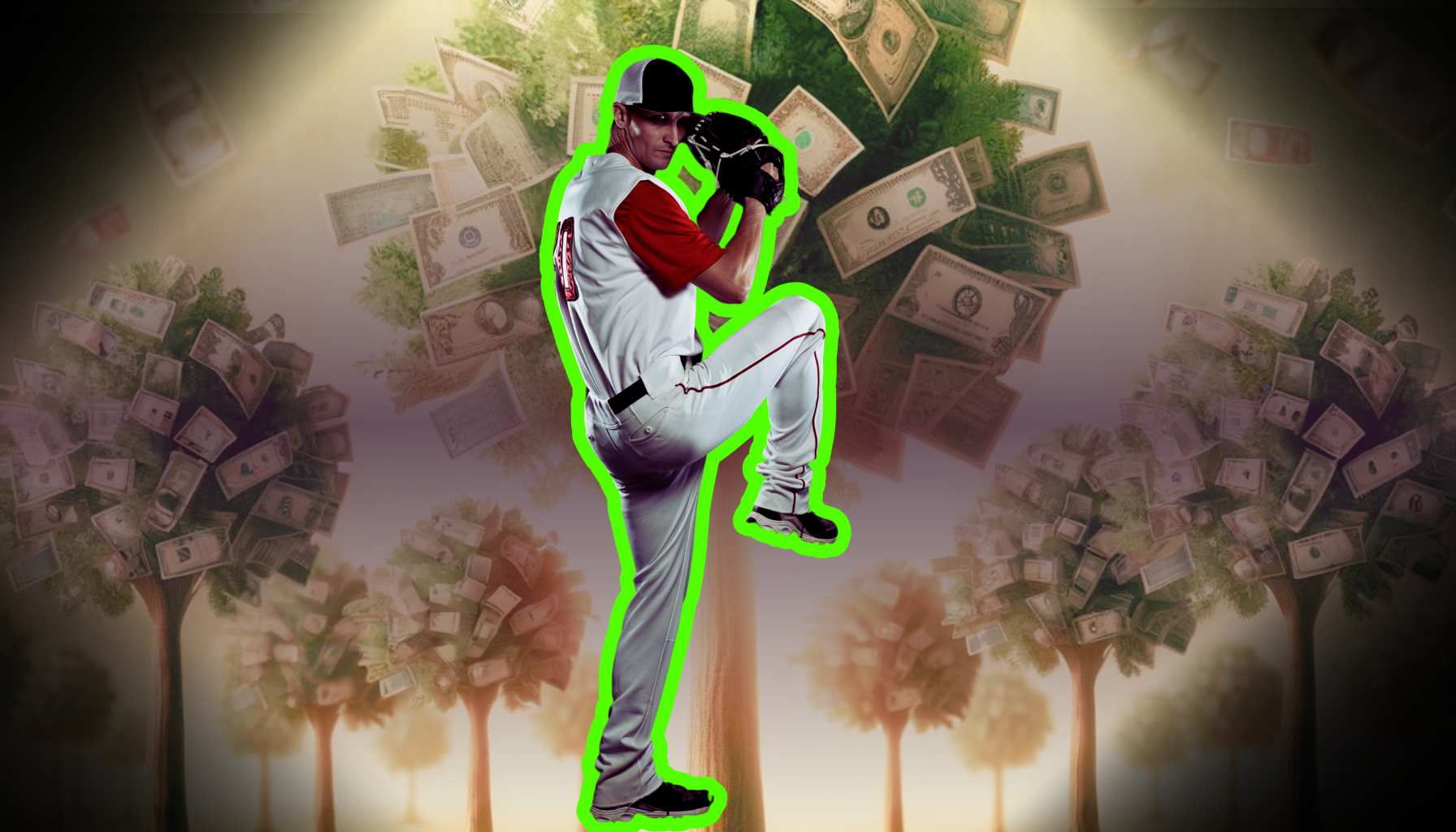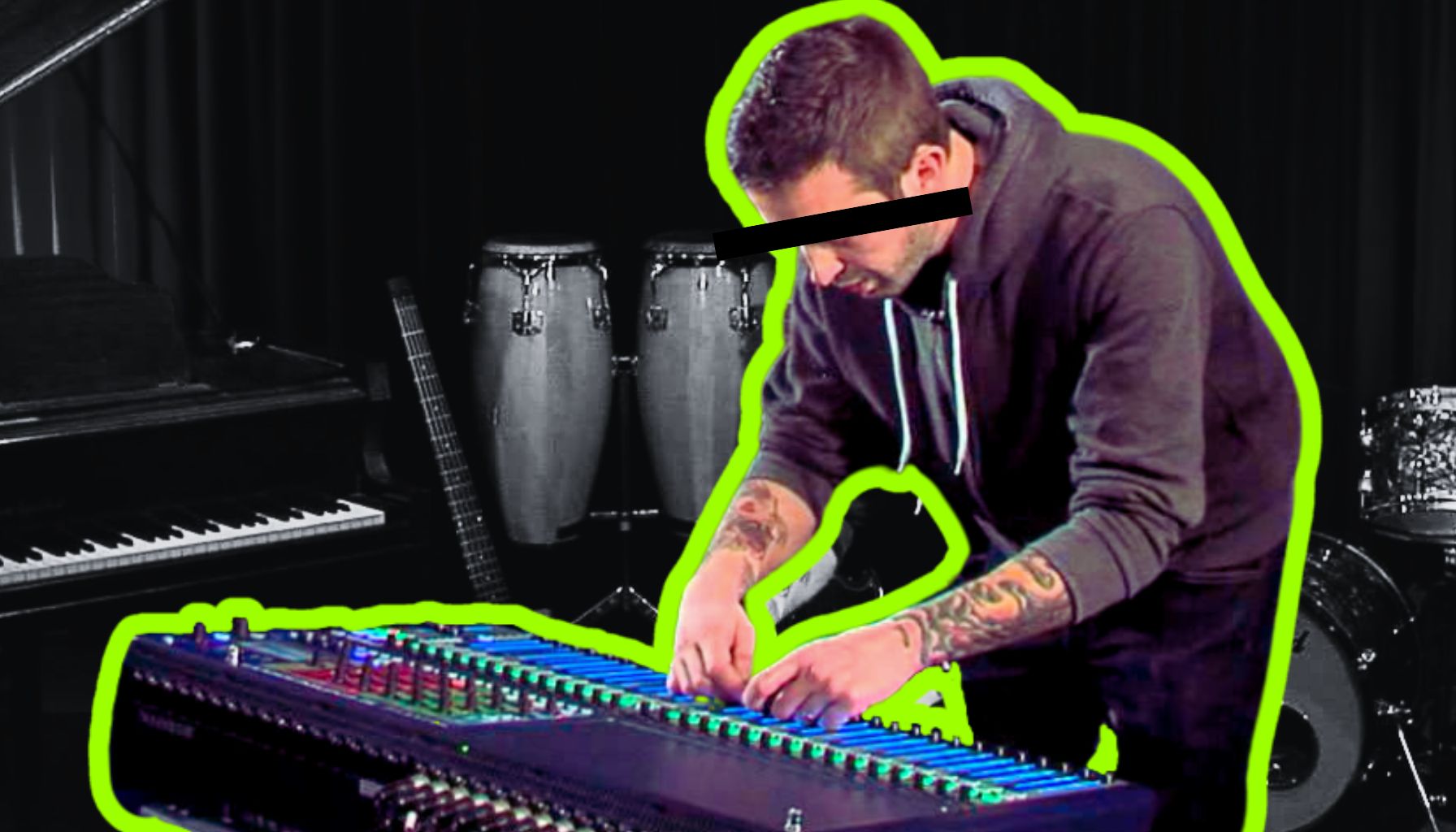I. Introduction to Blockchain in the Music Industry
A. Decoding Blockchain: Basics and Beyond
Let’s cut through the digital noise and get down to the nitty-gritty of blockchain. If you’ve ever felt like blockchain is a concept just floating in the tech ether, you’re not alone. So, what’s the deal with this tech buzzword that’s been shaking up industries from finance to, you guessed it, music?
At its core, blockchain is a distributed ledger, kind of like a communal notebook that everyone can write in but no one can erase. It’s transparent, tamper-proof, and decentralized, which means there’s no need for a middleman checking your ID at the door. The evolution of blockchain from a mere platform for cryptocurrency transactions to a multifaceted tool has been like watching a garage band go mainstream—unexpected but with a trail of hardcore fans supporting its rise.
B. Rationale Behind Blockchain Integration in Music Business
Why is the music biz all abuzz about blockchain? Simple. It’s because the current system often hits more sour notes than a beginner’s violin recital. We’re talking inefficiencies like convoluted royalty payments, piracy issues, and enough middlemen to fill a concert hall.
Enter blockchain, stage right, ready to revolutionize the way music is distributed, monetized, and enjoyed. With a decentralized system, artists could take the wheel, driving their careers without the need for those industry backseat drivers. It’s about putting power back into the hands of the creators and making sure they get their fair share of the applause—monetarily speaking, of course.
Blockchain isn’t just a fancy word for tech elites to throw around at cocktail parties; it’s a potential game-changer for musicians and industry pros alike, ready to tackle the challenges of copyright and royalties head-on.
II. Potential Benefits of Blockchain for Music Business
A. Transparency and Trust in Transactions
Imagine a world where every time a track is played, the artist gets their fair slice of the pie, no ifs or buts. That’s the kind of transparency and trust in transactions blockchain brings to the table. It’s like having a super-efficient, incorruptible accountant who lives inside your computer, ensuring that artists and rights holders get their royalties without the usual rigmarole.
1. Immutable Records: Revolutionizing Rights and Royalties Management
Blockchain is set to drop the bass on the traditional rights and royalties management system, turning it on its head. By creating immutable records, it ensures that once a song is registered on the blockchain, it’s as unchangeable as that one hit wonder’s hairstyle from the 80s. This means accurate tracking of music usage and a transparent view of who’s owed what, cutting through the red tape like a hot knife through butter.
2. Smart Contracts: Automating and Securing Artist Payments
Then there are smart contracts, the blockchain’s answer to “the check’s in the mail” line. These digital contracts automatically execute transactions once certain conditions are met, like when a song is streamed or downloaded. It’s like having a robotic agent who’s always on the ball, ensuring artists get paid on time, every time, without the usual chase.
B. Empowering Musicians with Direct Monetization Avenues
Blockchain isn’t just about putting out fires in the royalty department. It’s also lighting a fire under the music distribution model, warming up artists to the idea of direct monetization avenues. No more waiting for your label to cut you a deal; blockchain’s got your back.
1. Democratizing Music Distribution via Decentralized Platforms
Decentralized platforms are the new kids on the block(chain), giving power back to the people who make the music. These platforms level the playing field, allowing musicians to sell their tunes directly to fans without the need for a traditional distributor. It’s like a farmers’ market for music: fresh, direct, and without the supermarket middleman.
2. Enhanced Revenue Streams via Tokenization and Cryptocurrencies
Ever thought about owning a piece of your favorite song? With blockchain, that could be a reality. Tokenization allows artists to sell parts of their work as digital assets, which fans can buy, trade, and even speculate on. And with cryptocurrencies in the mix, transactions are smoother than a jazz solo, crossing borders without getting tangled in the web of currency exchange rates.
As we strum our way to the next section, it’s clear that blockchain could be the backing band the music industry didn’t know it needed. But before we get carried away, let’s not forget the need for a finely-tuned strategy to bring this technology into the spotlight. That’s where our next act, “Charting the Course: Steps towards Blockchain Adoption,” takes the stage. So, keep your ears perked and your mind open as we explore the journey of integrating blockchain into the rhythm of the music biz.
III. Charting the Course: Steps towards Blockchain Adoption
The music industry is like a complex melody, and integrating blockchain is about hitting the right notes in the right order. It’s not enough to just talk the blockchain talk; the industry has to walk the walk. So, what are the steps to make this symphony a reality?
A. Analyzing the Music Industry’s Readiness for Blockchain
Before we rock out with our blockchain out, we need to tune our instruments. Is the music industry ready for this technological ensemble?
1. Current Market Dynamics and Technological Infrastructure
Let’s face it, the music industry’s tech infrastructure can feel like a mixtape from the ’90s—nostalgic but not quite up to date. To harmonize with blockchain, we need an infrastructure overhaul that can handle decentralized databases and real-time royalty distribution. We’re talking about setting the stage for a gig of the future, one where blockchain is the headliner.
2. Identifying Early Adopters and Pioneers in Blockchain Integration
Every band has its front-runners, and the same goes for blockchain in music. These pioneers are the indie artists of tech, embracing blockchain early and showing the industry what’s possible. They’re the proof of concept, the living, breathing success stories that can inspire the rest of the industry to jump on the bandwagon—or in this case, the blockchain train.
B. Strategic Planning for Blockchain Implementation
Once we’ve scoped out the scene, it’s time for some strategic planning. How do we bring blockchain from the green room to the main stage?
1. Developing a Roadmap for Integration within Existing Frameworks
You wouldn’t go on tour without a map, and the same goes for blockchain integration. We need a clear roadmap that outlines how blockchain will be integrated within the existing frameworks of the music industry. This includes identifying key areas of impact, setting realistic timelines, and getting all stakeholders to sing from the same hymn sheet.
2. Collaboration Strategies with Tech Developers and Blockchain Experts
Let’s jam with the techies. Collaboration is key to making sweet, sweet music with blockchain. By partnering with tech developers and blockchain experts, the music industry can ensure that the technology not only rocks but rolls out smoothly. It’s about creating a hit record—a blockchain strategy that’s so good, it goes platinum.
As we riff into the next section, remember that the road to blockchain adoption in the music industry isn’t a solo act. It requires a band of players, from tech-savvy pioneers to industry stalwarts, all working together to tune into the rhythm of innovation. With the right steps and strategic planning, we can compose a future where blockchain doesn’t just feature as a guest artist but becomes a permanent member of the band.
IV. Blockchain-Powered Solutions for Copyrights and Licensing
We’ve rocked through the benefits and tuned our strategy for blockchain adoption in the music industry. Now, let’s riff on how this technology strikes a chord with copyrights and licensing. After all, what’s a rockstar without their rights?
A. Creating Immutable Digital Rights Management
In an industry where piracy is the arch-nemesis, blockchain swoops in like a superhero, providing a solution for digital rights management that’s as immutable as the classics.
1. Encoding Ownership and Usage Rights on the Blockchain
With blockchain, every note, lyric, and beat can be encoded with ownership and usage rights. This isn’t just a back-of-the-napkin promise; it’s a verifiable, unchangeable record that screams “mine” louder than a toddler with a new toy. Artists and creators can breathe easy knowing their work is protected against the boogeyman of the digital age – unauthorized use.
2. Simplifying Licensing Procedures for Artists and Creators
Gone are the days of red tape and paperwork nightmares. Blockchain simplifies licensing procedures, making it as easy as a one-click agreement. For artists, this means less time wrestling with legal jargon and more time doing what they do best – creating.
B. Addressing Piracy and Unauthorized Use
Piracy has been the unwelcome guest at the music industry’s party for too long. Blockchain is like the bouncer, showing piracy the door with its ability to track music distribution transparently.
1. Tracking Music Distribution with Transparency
With blockchain, every transaction is transparent, traceable, and as clear as the sound of a high-fidelity record. This level of transparency means that piracy doesn’t stand a chance. It’s like turning on the lights at a roach-infested kitchen – no more hiding.
2. Legal Protections Reinforced by Blockchain Technology
But what happens when someone does try to crash the party? Blockchain doesn’t just expose them; it reinforces legal protections. By providing an indisputable record of ownership and transactions, blockchain ensures that legal actions aren’t just possible; they’re backed by solid evidence.
V. Reimagining Music Distribution and Consumption
With the blockchain bandwagon ready to roll, let’s tune into how this tech could redefine the music scene’s distribution and consumption. Imagine a world where the middleman is as obsolete as cassette tapes, and artists connect with fans directly, no fuzz, no muss.
A. Unveiling the Potential of Decentralized Marketplaces
The traditional music industry model has had artists and fans playing a game of telephone with too many intermediaries. Blockchain is about to cut the cord.
1. Direct-to-Consumer Sales Within Blockchain Ecosystems
Blockchain marketplaces are the VIP backstage passes for fans. Artists can sell music directly to their audience, providing an intimacy that’s been missing since vinyl records played on a turntable. No more waiting for a record label to deliver your favorite tune; blockchain lets you download it straight from the source.
2. Expanding Audience Reach through Global Accessibility
The beauty of blockchain is its borderless nature. Artists can tap into global markets as easily as strumming an open chord. With decentralized platforms, a kid in Tokyo can discover a band from Tennessee, proving that music really is the universal language.
B. Participation Economy and Fan Engagement
The music industry’s been playing the same old song for too long. Blockchain’s about to change the tune, fostering a participation economy where fans are more than just passive listeners.
1. Encouraging Fan Investment via Crowdfunding and Tokens
Imagine if you could own a piece of your favorite song. With blockchain, fans can invest in tracks or albums through crowdfunding and tokens, turning the tables and allowing them to share in the success. It’s like being a groupie, but with financial benefits.
2. Exclusive Content Access and Experiences Through Smart Contracts
Smart contracts on the blockchain can unlock exclusive content and experiences for fans, creating a fan-artist relationship that’s tighter than a snare drum. Want a VIP concert experience or a limited-edition track? Blockchain’s smart contracts make it a reality, no scalpers in sight. As we segue into the next section, we can see how blockchain might just be the encore the music industry didn’t know it needed.
But hold your applause, because there’s more. We’re about to dive into the innovations in royalties and revenue distribution that blockchain enables. Get ready for a world where every artist gets their fair share of the pie – and they don’t even have to share their dessert.
VI. Innovations in Royalties and Revenue Distribution
If blockchain is the hot new guitar on the music scene, then innovations in royalties and revenue distribution are the sweet solos that get the crowd roaring. Let’s face it, the old system of royalty distribution could use a remix. It’s time to lay down a new track where fairness isn’t just a verse in a feel-good ballad—it’s the chorus that everyone sings along to.
A. Smart Contracts for Fair and Timely Compensation
The days of chasing down royalty checks like they’re the last bus of the night are over. Blockchain brings smart contracts to the stage, ensuring artists get paid on time, every time, without the runaround.
1. Overhauling Royalty Splits with Transparent Automation
With smart contracts, royalty splits aren’t just transparent; they’re as clear as the sound of a bell. No more mysterious deductions or creative accounting. Every contributor—from the lyricist to the guitarist—gets their slice of the pie, and it’s all baked into the blockchain for everyone to see.
2. Real-Time Revenue Sharing Among Collaborators
Imagine a world where artists get paid the moment their song is streamed. That’s not a pipe dream; it’s the potential of blockchain. Real-time revenue sharing means that as soon as the cash register rings, the cha-ching is reflected in everyone’s digital wallets.
B. Navigating the Challenges of Cross-Border Payments
Music knows no borders, but unfortunately, traditional payment systems do. Blockchain is like a world tour with no visa issues, making cross-border payments as smooth as a sax solo.
1. Reducing Friction and Fees in International Transactions
Say goodbye to hefty transaction fees and hello to more money in the bank. Blockchain reduces the friction and fees associated with international payments, meaning that when your music goes global, your profits do too—without getting lost in currency conversion.
2. Ensuring Regulatory Compliance in a Global Context
Navigating the regulatory waters of international payments can be like trying to play a guitar solo in a thunderstorm—messy. Blockchain brings the calm, ensuring compliance with global regulations so artists can focus on what they do best: making music, not deciphering legal jargon.
As we transition from the riffs of revenue distribution to the next stage of our blockchain world tour, we’re about to delve into the nitty-gritty of creating a culture that’s fluent in both music and blockchain. So, strap in and tune up, because cultivating a blockchain-savvy culture in the music business is where the rubber meets the road, and we’re all in for the ride.
VII. Cultivating a Blockchain-Savvy Culture in Music Business
As we’ve strummed through the chords of blockchain’s potential in the music industry, we’re faced with a crucial encore: How do we foster a culture that’s as fluent in blockchain as it is in beats and bars? It’s about hitting the right notes in education and community building, ensuring that everyone from the up-and-coming indie artist to the seasoned executive is ready to jam in this new digital concert hall.
A. Education and Training Initiatives for Industry Professionals
Just like mastering an instrument, understanding blockchain doesn’t happen overnight. It’s about practice, patience, and the right kind of teachers hitting the high notes of knowledge.
1. Workshops and Resources for Understanding Blockchain Implications
Think of blockchain workshops as your music lessons for the digital age. They’re where industry pros can learn to riff on the complexities of this technology, understand its implications, and start writing the next chart-topper that’s as secure as it is catchy.
2. Bridging the Knowledge Gap Between Music Executives and Tech Innovators
The stage is set for a duet between music execs and tech innovators. By bridging the knowledge gap, we ensure the industry can orchestrate a symphony of success. It’s about translating tech talk into plain English, so the suit and the coder can both groove to the same beat.
B. Community and Network Building Among Stakeholders
A hit single isn’t made in a vacuum, and neither is a blockchain revolution. It takes a village—or in this case, a network of passionate stakeholders—to bring this vision to the main stage.
1. Fostering Collaborations and Alliances Across the Music Ecosystem
Collaboration is the name of the game. By fostering alliances across the music ecosystem, blockchain can become the rhythm that everyone moves to. It’s about artists, producers, labels, and tech gurus coming together like a band on a mission to take over the charts.
2. Engaging with Blockchain Startups and Innovators
The new kids on the blockchain block are the startups and innovators. Engaging with these bright minds can lead to breakthroughs that not only push the industry forward but also keep it in tune with the times. It’s like discovering a new genre of music—you never knew you needed it until you heard it.
With the stage now set for a culture that’s as blockchain-savvy as it is musically gifted, we’re ready to drop the needle on the next track. It’s time to explore the role of cryptocurrencies in music transactions, where the rhythm of finance meets the melody of innovation. So, let’s dive into the mix and see how crypto can turn the music industry up to eleven.
VIII. Exploring the Role of Cryptocurrencies in Music Transactions
Diving into the digital wallet of the music industry, we hit play on a track that’s got everyone’s head bopping: cryptocurrencies. It’s the remix that could have artists and fans alike dancing to a new tune of transactions. But like any experimental beat, it comes with its own rhythm and blues.
A. Prospects and Pitfalls of Crypto Payments within the Industry
The digital currency dance floor is enticing, with the spotlight on autonomy and innovation. Yet, it’s not all smooth grooves; volatility can sometimes make it feel like you’re moshing when you wanted to waltz.
1. Acceptance and Volatility: Weighing the Pros and Cons
Let’s face it, getting everyone to accept crypto is like trying to get a band to agree on a setlist. Some venues are all in, selling tickets and merch for Bitcoin, while others are still checking if their amps work. And with prices swinging like a pendulum, it’s a financial mosh pit that’s not for the faint of heart.
2. Regulatory Clarity and the Integration with Traditional Currencies
The chorus of concerns gets louder when it comes to regulations. With every country singing a different tune, it’s like trying to sync a global album release without a manager. But for those who can navigate this evolving landscape, the harmony between crypto and traditional currencies could be music to the ears.
B. Music NFTs: A New Asset Class for Artists and Fans
Non-Fungible Tokens (NFTs) are the VIP passes of the blockchain concert, offering a backstage experience that’s as unique as a vinyl record in a sea of digital streams.
1. Understanding Non-Fungible Tokens and Their Uniqueness
NFTs are the autographed posters of the digital world. They’re one-of-a-kind, and owning one is like holding a piece of music history in your virtual hands. It’s not just about listening; it’s about owning a moment, a beat, a note.
2. Case Studies: Successful Music NFT Projects
From bands releasing limited edition albums as NFTs to artists dropping exclusive digital art, the success stories are piling up like platinum records on a studio wall. These case studies not only showcase the potential of NFTs but also act as a siren song, luring others to explore this brave new world.
As we fade out from the discussion of cryptocurrencies and NFTs, we’re tuning into the final notes of our blockchain melody. The stage is set for a conclusion that encapsulates the transformative impact of this technology on the music industry, and a look into the crystal ball at what the future may hold.
IX. Conclusion: Envisioning a Blockchain-Enhanced Future for Music
And so, as the last record spins on our turntable of discussion, we come to the grand finale of our blockchain ballad in the music industry. We’ve riffed on the tech, jammed with the jargon, and even dropped a few beats with crypto – but what does the final track look like in this digital album of innovation?
A. Summarizing the Transformative Impact of Blockchain
From the indie bands in the garage to the execs in the high-rise corner offices, blockchain has the potential to rewrite the sheet music of the entire industry. This isn’t just about tuning up the old business model; it’s about composing a whole new symphony.
1. A New Harmony of Efficiency and Fairness
Blockchain could be the metronome that keeps the rhythm of the industry steady and fair. With [immutable records](https://blockgeeks.com/guides/what-is-blockchain-technology/) and [smart contracts](https://www.investopedia.com/terms/s/smart-contracts.asp), artists could see their royalties hit the high notes without the interference of static from middlemen.
2. A Crescendo of Creative Control and Direct Fan Connections
Artists might soon conduct their own financial futures, orchestrating direct-to-fan experiences that could make the old-school music moguls look as outdated as an 8-track player. This could be the standing ovation moment for creative control.
B. Futuristic Outlook: Ongoing Developments and Remaining Frontiers
While the blockchain bandwagon is just revving up, there’s a road of development ahead that’s as long and winding as any tour schedule.
1. The Encore of Emerging Technologies
The show’s not over yet. With [NFTs](https://www.forbes.com/sites/bernardmarr/2021/03/12/nfts-explained-what-are-non-fungible-tokens-and-why-are-they-valuable/?sh=4e3d4b4b2fe3) making noise and decentralized platforms setting the stage, there’s an encore of emerging technologies waiting in the wings. These could be the new headliners, drawing in crowds with promises of a performance like never before.
2. Navigating the Tightrope of Regulation and Adoption
The high-wire act of regulation and adoption is next. As governments and industries attempt to harmonize, it’s a ballet that requires poise and patience. The key is to keep dancing to the beat of innovation without tripping over the red tape.
As the house lights flicker and the crowd murmurs with anticipation, we look forward to the encore – a future where blockchain technology could be as ubiquitous in the music business as catchy hooks and choruses. The next act promises to be an electrifying fusion of tech and tunes, where the music plays on, uninterrupted by the skips of inefficiency and the scratches of inequity.
FAQs on Integrating Blockchain Technology in Music Business
And now, for the post-show meet-and-greet: an FAQ session designed to help you navigate the backstage of blockchain in the music industry. From the basics of blockchain to the intricacies of NFTs, these answers will help you tune your instrument for the next wave of the music revolution.
FAQs on Integrating Blockchain Technology in Music Business
What is blockchain technology, and how can it benefit the music business?
Blockchain technology is a decentralized digital ledger that records transactions across many computers. In the music business, blockchain can [benefit artists and labels](https://www.forbes.com/sites/forbestechcouncil/2018/09/11/how-blockchain-can-transform-the-music-industry/?sh=7f7e3a6b6b9a) by creating a more transparent and efficient system for rights management, royalty distribution, and eliminating intermediaries.
How can artists and songwriters use blockchain to manage their copyrights?
Artists and songwriters can use blockchain to [encode ownership and usage rights](https://cointelegraph.com/news/blockchain-for-art-movement-gains-traction) directly onto the blockchain. This creates an immutable record of their work, making it easier to claim ownership and enforce licensing agreements.
What are smart contracts, and how do they relate to music royalties?
Smart contracts are self-executing contracts with the terms of the agreement directly written into code. In the context of music royalties, [smart contracts](https://www.blockchain-council.org/blockchain/how-can-smart-contracts-in-blockchain-redefine-value-exchange/) can automate the distribution of royalties, ensuring that artists and contributors are paid fairly and promptly.
Can blockchain technology truly prevent music piracy?
While no system is foolproof, blockchain technology can significantly [reduce music piracy](https://www.ibm.com/blogs/blockchain/2017/04/blockchain-and-music-piracy/) by providing a transparent and secure way to track the distribution and consumption of music. It makes it easier to identify and address unauthorized use.
How do decentralized music platforms differ from traditional ones like Spotify or Apple Music?
Decentralized music platforms operate on blockchain technology, allowing for direct interaction between artists and fans without the need for intermediaries. Unlike traditional platforms like [Spotify or Apple Music](https://www.digitalmusicnews.com/2020/09/23/blockchain-music-platforms-list/), decentralized platforms can offer higher royalties to artists and more control over their work.
What challenges might the music industry face when integrating blockchain technology?
Challenges include the [complexity of the technology](https://www.musicbusinessworldwide.com/blockchain-music-5-essential-reads-understand-hype/), the need for widespread adoption, regulatory uncertainty, and the potential resistance from industry players who benefit from the status quo.
How could the use of cryptocurrencies change the financial landscape for musicians?
Cryptocurrencies can provide musicians with new ways to monetize their work, reduce transaction fees, and enable instant payments. However, they also introduce [volatility and regulatory challenges](https://www.coindesk.com/learn/what-are-the-potential-benefits-of-cryptocurrency-in-the-music-industry/).
What are music NFTs, and why are they becoming popular?
Music NFTs are non-fungible tokens that represent ownership of unique music-related items or experiences. They are becoming popular because they allow artists to monetize exclusive content, engage with fans, and provide proof of authenticity and ownership.
What steps should a music business take to start integrating blockchain technology?
To integrate blockchain, a music business should start by educating themselves on the technology, exploring partnerships with blockchain experts, and considering strategic investments in blockchain-based platforms or startups. By addressing these FAQs, the article not only becomes a comprehensive guide on blockchain in the music business but also aims to capture the curiosity of readers searching for answers, potentially ranking as featured snippets in search results and driving more organic traffic to the site.













